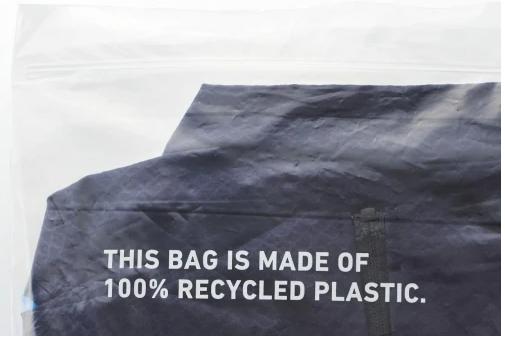
Components manufacturer Shimano has announced that it will transition to more sustainable, eco-friendly packaging, as around 70 bike companies pledged this week to reduce plastic packaging and remove unnecessary packaging from the supply chain, in a bid to make Europe “cleaner, greener and more liveable”.
Shimano says (link is external)it will package its footwear, service and upgrade parts, apparel and most eyewear in new eco-friendly designs.
Aiming to “reduce waste and deliver our products more sustainably”, Shimano claims that it will eliminate as much single-use plastics as possible to reduce C02 and marine pollution, transition to recycled and mixed paper sourced from post-consumer products, and make better use of resources with smaller package designs.
The company will also reduce the amount of ink on packaging to make recycling easier. Soft goods packaging will contain much less plastic, and 100 percent recycled and recyclable poly bags will be used when it is necessary to protect technical fabrics.
“We believe these changes to more nature-friendly packaging better reflect our commitment and love of nature and ensure that future generations continue to enjoy the outdoors,” Shimano said.
Earlier this week, Cycling Industries Europe (CIE) and the Confederation of the European Bicycle Industry (CONEBI) launched an industry-wide commitment(link is external) to reduce problematic plastic packaging.
The pledge was signed by around 70 founding companies, including folding bike manufacturer Brompton, with others invited to follow suit.
The commitment includes endorsing a common vision for more circular and sustainable packaging solutions with supply chain partners, in line with the European Commission’s goal for a circular economy and closely affiliated with the vision of the Ellen MacArthur Foundation’s ‘New Plastics Economy Initiative’.
The companies will work to reduce plastics, eliminate unnecessary packaging, increase recycled content within packaging materials, and to ensure that all supply chain packaging is reusable, recyclable or compostable by 2025.
> Is merino wool really the ultimate sustainable choice for cycling kit?
“Cycling is at the core of the mobility transition, making sure Europe is cleaner, greener and more liveable,” said Kevin Mayne, CEO of CIE. “The way our industry operates has to meet the same high ambitions, so we need to be at the forefront of a sustainable industrial sector.
“CIE and CONEBI have set an ambitious agenda to tackle important industry-wide challenges and to initiate pioneering initiatives and actions across the supply chain. This packaging initiative is the first of many ways we will act to reduce our environmental impact.”
Louisa Holbrook, head of sustainability at Brompton Bicycle, said: “At Brompton Bicycle we are proud to make a bike that by its very nature addresses existing environmental and social issues. But when faced with a climate emergency we cannot rest on our bike manufacturer laurels.
“Supplier packaging may only be the tip of the ever-decreasing iceberg, but it’s an important start. I am proud to be part of this aligned industry approach, but the real work starts now by implementation and creating positive change.”







